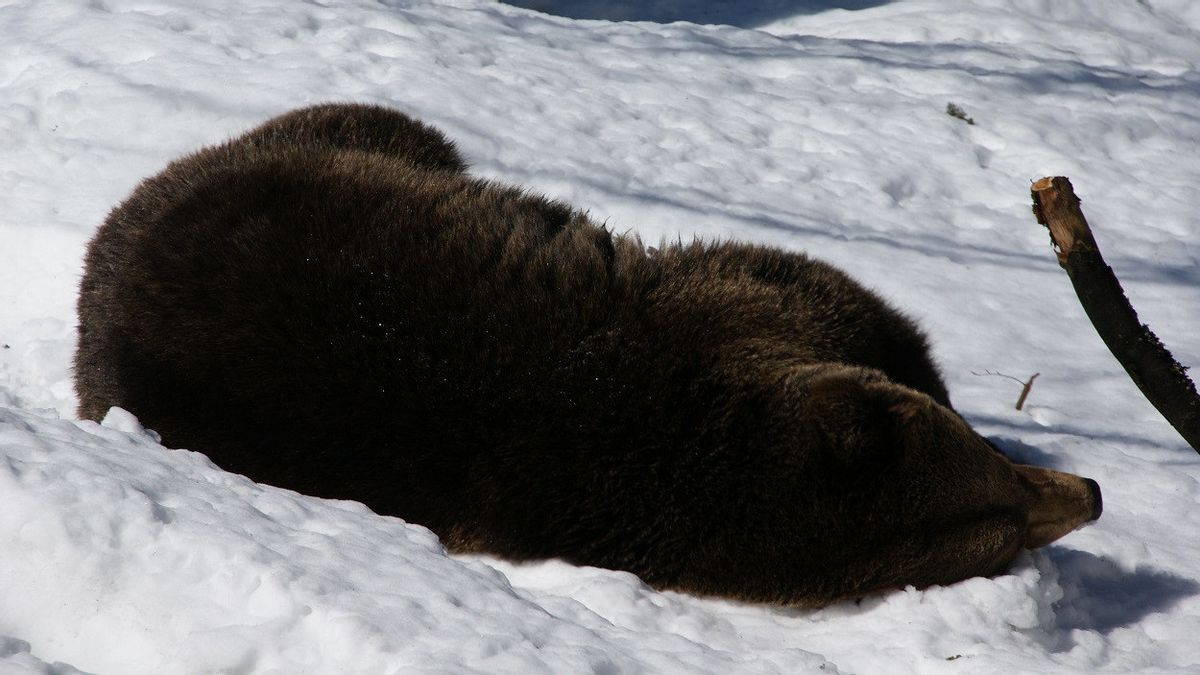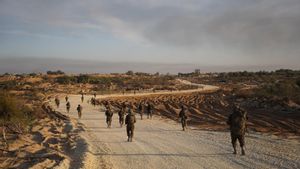JAKARTA - The brown bear in the pine forest of Sarikamis District, northeastern region of Kars, Turkey began to hibernate, marking changes in seasonal behavior, as snow began to blanket the area.
Science Coordinator at the Kuzeydo AssociationURha Emrah Badminton, which monitors brown bears in the Sarikamis forest via satellite, traps and cameras, revealed that six of the eight observed bears had entered hibernation ahead of December.
Coban is known to be active in tracking brown bears throughout Turkey, especially in Sarikamis. He stressed that the association made these efforts to uncover the mysteries surrounding the bear's life in the country.
"Since 2011, we have studied brown bears, trying to uncover aspects of their lives that were previously unknown," explained Coban, as reported by the Daily Sabah on December 5.
He further explained that brown bears are starting to prepare for hibernation as they enter the fall.
"They turn to richer autumn fruits, eat more food, and gain weight. Even though snowfall in our region and country is happening gradually, it seems that bears are accelerating the hibernation process due to the colder weather," explained Coban.
"Hibernation, in essence, is an adaptive strategy developed by animals when food becomes scarce or limited," he continued.
Sharing observations gathered from various regions, galoban highlighted that bears do not hibernate immediately when snow falls. They undergo a preparatory phase, which gradually culminates in their entry into hibernation.
"In winter, the forest will become quiet because the bears hibernate. The public must pay attention to safety protocols. Coal bears are wild animals and are potentially dangerous, especially when shocked or cornered. If they are seen on the outskirts of the city due to snowfall, it is advisable to keep their distance safe from their habitats for the sake of our safety and them," he warned.
SEE ALSO:
Earlier this year, brown bears were seen looking for food in Turkish pine forests in Sarikamis District, Kars instead of hiberning, due to global warming and the climate crisis, which had an impact on animal life, as quoted by Al Mayadeen.
These native Turkish animals usually started hiberning in November and December and were built between March or April. Their appearance when it was supposed to hibernate was said to be due to lack of snow, changes in weather to lack of food in the wilderness.
Experts warn that local bear populations are at risk of extinction if their food cycles are not in line with weather like what happens in nature.
The English, Chinese, Japanese, Arabic, and French versions are automatically generated by the AI. So there may still be inaccuracies in translating, please always see Indonesian as our main language. (system supported by DigitalSiber.id)













